G u m b a l l P r o j e c t - T h e P u l l m a n S t r i k e

Title: "Carwardine - justice offering" Dimensions: 48.5" x 30" Assembled objects: Gumball machine, bible, offering/tiding bags, wood, pages from Carwardine's book "The Pullman Strike" Interactive I’ve asked friends, authors, historians, scholars, activists, laborers and labor leaders to write something related to each piece in the project. I am so appreciative of each and every one of them for their contribution. He served Illinois pastorates in Steward, Poplar Grove, LaSalle, and Chicago churches in Pullman, Ada Street, Adams Street, Gross Park, Humboldt Park, and a number of other parishes. He became the religious editor of the Chicago Herald and Examiner, contributing daily articles starting in 1905. He died on August 25, 1929, in Evanston, Illinois. His scholarship and his ministry, while impressive, pale in comparison to his significant contribution to labor relations in the United States. On August 31, 1929, the Chicago Daily News described his contribution to Labor Day and labor relations. “When the Reverend W. H. Carwardine was pastor of the Pullman church he undertook to understand why his parishioners and other fellow townsmen were on strike with the workers of the Pullman car shops. As he found out, he tried to make others understand, from his pulpit, in the newspapers, and on the platform in many other cities.” His support of the striking workers of the Pullman strike of 1894 resulted in his publication of a book entitled The Pullman Strike (Charles H. Kerr, Chicago, IL, 1894). In this work, he attacked the Pullman Company and defended the striking workers. He became a key witness in the United States Strike Commission’s investigation and his testimony and part of his book were incorporated into the Commission’s report. The report was presented to Congress. After the strike, he lectured on labor and social justice matters in 64 cities to labor organizations, Chautauquas, and civic organizations. To understand the importance of his work, and the importance of his stance during the strike, it is necessary to realize how radical his stance and ministry were in his time. In his lifetime, the United States was oriented to a system of rewarding and tacitly supporting the great man in society – those that were daring and innovative, but also those that were well-placed and simply lucky. Economic and societal systems oriented in this matter are known as laissez-faire. Minimal constraints in government regulations, societal beliefs, and a celebration of the individual resulted in a philosophy and orientation that can be described as simply Increase Shareholder Value, whether the shareholder is one person or many. In contrast, Carwardine’s beliefs and his ministry can be described as a philosophy that seeks to Increase Stakeholder Value. The populist social gospel embraced by him envisioned a society oriented towards supporting and providing opportunity to all its members. Government and societal norms help all members of society achieve as much as they are capable of and are oriented towards the greater good. It should be noted that the societal tension between these two competing philosophies is a debate that is still present to this day. A prime example of the emphasis of the great man in Carwardine’s time can be seen with how contemporary newspapers described the effects of the strike on George Pullman. “EXTRA” a headline read; “Pullman Taken Ill. Palace Car Man said to be suffering from nervous prostration!” (Chicago Mail, May 22, 1894). Several column inches were devoted to Pullman’s unhappiness. Contrast this with how the strike affected many Pullman residents. The Chicago Tribune reported on August 26, 1894 about the fate of many affected during that long summer: “John T. Cornell. Wife and six children; blacksmith till disabled three years age: since then a laborer in steamfitters' shop. Earned $1.40 a day at that. Idle since strike. Boy 18 years old cannot get work. In Pullman fourteen years, Owes $94 rent, $15 butcher, $35 doctor, $3 milk.” “Paul Kennedy. Wife, family grown up and away. Blacksmith; laid off two weeks before strike. Earned last year $3 a day on piece work; $1.25 this year on the average. In Pullman thirteen years. Owes $50 rent, No ether debts, but savings all gone. Gave up use of milk.” “Peter Camp. Wife and seven children; has earned nothing for six months; is destitute and entirely dependent upon the relief store for provisions.” Their desperate circumstances were noted and even acknowledged; however, the emphasis and tone of the article was on reporting circumstances rather than a sympathetic retelling. Economic desperation in Pullman, and of course elsewhere in the United States, came as a result of the Panic of 1893. The inherent strength of the laissez-faire system of business and government working together turned into a critical weakness as railroads overextended themselves, banks failed, and grain prices dropped precipitously. George Pullman and the Pullman Company laid off workers or cut their wages by as much as 28 percent. Pullman did not lower rents for housing in an attempt to guarantee his investors, already shaken by the failure of heavily traded companies such as the National Cordage Company, a steady return on their Pullman Company investment. Workers began striking at the Pullman Company in May of 1894. The strike engendered a wide spectrum of support or disdain in newspapers throughout the world. Here is a quote from the Victoria Warder published in Lindsay, Ontario (May 18, 1894): “In this working-day world one frequently hears great outcry against capital oppressing labor, but rarely much is penned concerning the tyranny of the latter. A striking instance of how unreasoning labor may be is furnished from the city of Pullman in Chicago.” The strike, which began modestly, soon became a national cause with the addition of Eugene Debs and his attempt to bring railway workers into one common union. Carwardine repeatedly praised Debs in his book, The Pullman Strike. He devotes an entire chapter to Debs, contrasting his work and demeanor with that of George Pullman. As an example, on page 31, he says of Debs, “He is a man of great executive ability and a wonderful organizer.” Carwardine’s support of Debs, whose work and organizing efforts caused him to be branded with the labels of King Debs, anarchist, and criminal, was not without personal and professional risk. So, too, was his emphatic and impassioned support of the strikers. The Chicago Inter-Ocean, August 19, 1894: “Men like Mr. Carwardine do much harm… when a preacher of the gospel of peace uses language calculated to inflame passion he errs greatly.” The Chicago Tribune, September 11, 1894: “After his talk Dr. Parkhurst announced he had been told Mr. Carwardine could not receive an appointment for the next church term on account of the stand he had taken on the labor question.” Carwardine supported the strikers and his parishioners after careful deliberation. During the Strike Commission testimony, he was questioned about his view on strikes in general: “(Mr. Wright) Mr. Carwardine, are you an advocate of strikes? (Carwardine) No sir. I deplore them. I am much inclined towards arbitration… (Wright) Are you inclined towards State Socialism? (Carwardine) Well, I have been charged with being a Socialist and an Anarchist… I might be what you would call a Christian Socialist, but as to anarchy, I repudiate it entirely.” The Pullman Strike begins and ends with the same quote: “The laborer is worthy of his hire.” No better testament to the strength and character of Carwardine and the support he enjoyed from parishioners, Pullman employees, and Pullmanites alike can be seen in a letter of support from the Central Strike Committee, July 23, 1894: “[the] Rev. W. H. Carwardine is a man of sterling ability. A clear thinker. An eloquent speaker. Concise and to the point in his statements… The Rev. is noted for his veracity and fearless devotion to justice at all times.” This letter was signed by T. W. Heathcote, president of the Strike Committee, R. W. Brown, vice-president; and J. IV. Jacobs, acting secretary and was one of Carwardine’s prized possessions. *Andrew Bullen recently retired from his role as Information Technology Coordinator for the Illinois State Library. He has worked with the Pullman State Historic Site to bring the images and archives of his neighborhood in Chicago, Pullman, to life. He is part of the team that has developed the Illinois Digital Archives, a statewide repository of image collections, and the Electronic Documents of Illinois, a system for the permanent preservation of born-digital state documents. Andy works with the board of The Historic Pullman Foundation and is an active speaker/lecturer on all things.
by Rev. Luther C. Mason As Human Beings and especially Faith-Leaders, we are called to do the “Required Work” of Justice and Mercy (Micah 6:8), and as a Pastor, we are called to take the “Required Work” even deeper, embracing it in our call to ministry as we love and serve God and God’s People. I believe that at the heart of Rev. William H. Carwardine’s ministry in the Town of Pullman was the “Required” Work of Justice and Mercy, and I am honored to carry that mantle forward today in the Pullman National Historical Park Community. The Methodist Episcopal Church began organizing a faith community while the town of Pullman and George Pullman’s factory complex was being built in 1880, being the first religious institution to organize in the town. January 1882, the organized faithful became Pullman Methodist Episcopal Church with seventy congregants, nineteen founding members, and a Sunday School of sixty-five children. Upon the arrival of Rev. Carwardine in 1892, the congregation had grown to two-hundred persons, all families of Pullman workers, and the Sunday School had grown exponentially in those twelve years as well. Life was good in the Town of Pullman, and the Pullman Methodist Episcopal Church lent herself to Christian work within the town. In 1893, America suffered a financial panic weakening the economy, and thus, many railroad companies stopped buying Pullman made passenger cars. The Pullman company began laying off workers, lowering wages, and increased housing rentals, thus a strike was called by the workers in 1894. Many of the complaints waged by the strike was the lack democracy and the bad politics in the town of Pullman, the hardline control of the workers by the company, high cost of living like the cost of water and gas, and the refusal of the company to allow workers to buy and own their housing. So, who would tow the line, stand, and fill the gap for the rights of the workers? Those who are charged to do the “Required Work” of Justice and Mercy, and there stood Rev. William H. Carwardine, pastor of the Pullman Methodist Episcopal Church. I oft times wonder what it was really like for Rev. Carwardine here in Pullman. His book “The Pullman Strike” lends an insightful light into life in the town and within the Pullman Company during his time here. While life in Pullman from the outside looking in may have seemed to be a utopia, it wasn’t always for the workers and their families. Thus, Carwardine had a duty to tell the Gospel truth and apply it to the Pullman truth. In Carwardine’s book “The Pullman Strike”, he writes: “Sometimes we preachers are told to mind our own business and "preach the gospel." All right; I have preached the gospel of Christ, and souls have been redeemed to a better life under the preaching of that gospel. I contend now that in the discussing of this theme I am preaching the gospel of applied Christianity-applied to humanity-the gospel of mutual recognition, of co-operation, of the "brotherhood of humanity." The relation existing between a man's body and his soul are such that you can make very little headway appealing to the soul of a thoroughly live and healthy man if he be starving for food. Christ not only preached to the multitude, but he gave them to eat. And I verily believe that if he came to Chicago to-day, as indicated by the erratic yet noble Stead, he would apply the whip of cords to the backs of some of us preachers for not performing our full share of duty to "his poor."” [The Pullman Strike p. 14] I believe that Carwardine, whom through the Methodist tradition of John Wesley's “Means of Grace”, which teaches that God's grace is unearned and we are not to be still waiting to experience grace but active and engaging in the means of grace. It is the means of grace in which God works invisibly in each and every one of us, hastening, strengthening; and confirming faith so that God's grace pervades in and through us. The means of grace are divided into works of piety and the works of mercy, both include individual and collective practices. Works of Piety: reading, meditating, and studying the scriptures, prayer, fasting, regularly attending worship, healthy living, and sharing our faith with others, the share in the sacraments, Christian conferencing or accountability to one another, and Bible study. The Works of Mercy are: doing good works, visiting the sick, visiting those in prison, feeding the hungry, giving generously to the needs of others, seeking justice, ending oppression and discrimination, and addressing the needs of the poor. A tall order to command, but Rev. Carwardine was poised for the “Required Work” and did so in Pullman during the great strike. While holding together the Pullman Methodist Episcopal faith community by works of piety, he engaged in the works of mercy, organizing the church and community into action bringing aid and relief to the Pullman workers and their families. He stood against the Pullman powers that be, collecting data and writing about the conditions the workers endured. He was one of the first local voices in Chicago who advocated for workers’ rights. He preached justice from the pulpit, while telling the injustices facing the workers while other local ministers were pro-Pullman, siding with the rich and powerful which is antithetical to the Gospel of Jesus and the “Required Work” of God. Rev. Carwardine had to do this work, and I believe that he used the Wesley Quadrilateral which was part of John Wesley’s Anglican Theological tradition to come to the decision to dive deep into the “Required Work”, righting the wrongs that were happening in Pullman effecting the workers and his congregation directly. The quadrilateral uses these four points: (1) Scripture, (2) tradition, (3) reason, and (4) experience. So, Scripturally, Carwardine was required to do so. Traditionally, as his Christian duty he was called to it. Applying Reason, it is truly within his realm to do so. Finally, he was Experiencing it daily through what his parishioners were going through. Couldn’t you just imagine a day in the life of Rev. Carwardine in Pullman, encountering his congregants with issue upon issue labored upon them from their employer. It had to not only tug at his heart strings but fuel his spirit to lean on the means of grace through the works of mercy, to do good works, to give generously to the needs of others, to stand up and seek justice, working to end oppression and discrimination, while addressing the needs of the workers. He did so, not only leading by example, filling the gaps, standing on the front lines, and organizing others to join in doing the “Required Work” of Justice and Mercy during the time of the Pullman Strike. In chapter ten of Carwardine’s book he says: “Suffer a few words of personal allusion. When I delivered my sermon on "The Pullman Strike," ten days after its employees walked out of the shops, I had no idea that it would have created the interest, that it has. It was rather an audacious act to perform, because, owing to the peculiarity of the paternalistic government of Pullman, no one feels like openly criticizing the Company. The time having arrived, I spoke out, what were my honest, candid convictions, without thought. of fear or favor. My position was peculiar. I did not endorse the strike; and never have. I did not endorse the boycott. Repeatedly I have said this, but I stood for justice. If the workingmen believe in strikes and boycotts, all right. They have found that strikes may do, but boycotts will not do. But these working men use the weapons seemingly most useful, as they think, for their purpose. But I look back at all this, and say," Let us unearth the cause!" Strike at the root. Don't revile and curse these employees! Vituperation of strikers will do no good. Study the situation and give them in their demand for justice your sympathy and moral support.” [The Pullman Strike p. 118] For ten years I have had the privilege to engage in servant-leadership here in today’s Pullman, not only to the congregation, but to the entire Pullman National Historical Park community. I am honored to continue in the vein of the work of Rev. Carwardine at the Historic Greenstone United Methodist Church which began as the Pullman Methodist Episcopal Church, as we do the “Required Work” of Justice and Mercy, through the “Means of Grace”, loving and serving God and God’s people and fighting for what is just and right for all people. *Rev. Luther C. Mason, Pastor, Chicago: Greenstone & East Side UMC Special Note: The Eugene V. Debs Foundation and Historic Pullman Foundation have teamed up with Charles H. Kerr Publishing Company for the publication of a 130th anniversary edition of The Pullman Strike by Rev. William H. Carwardine. (available early 2024) |
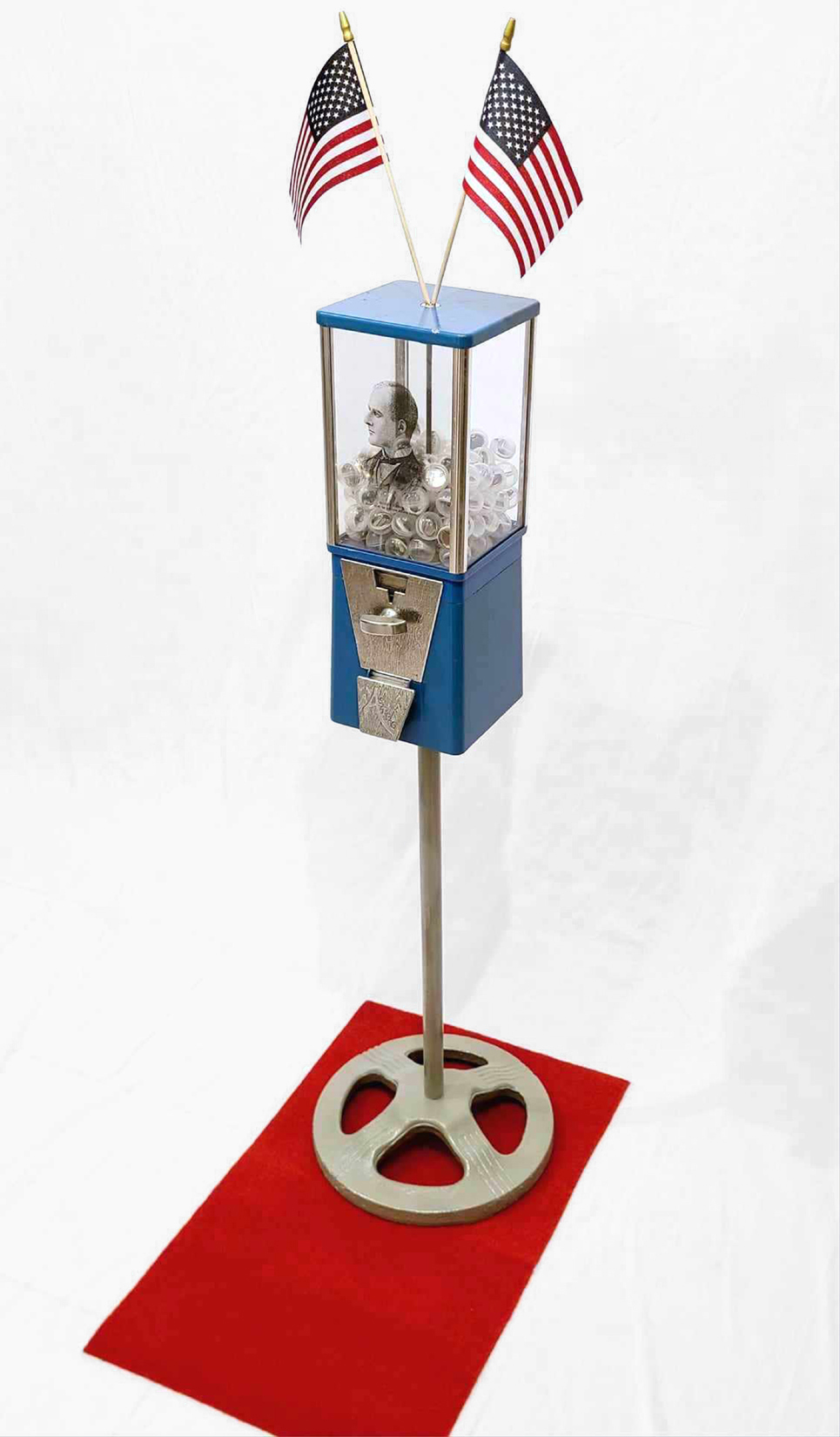
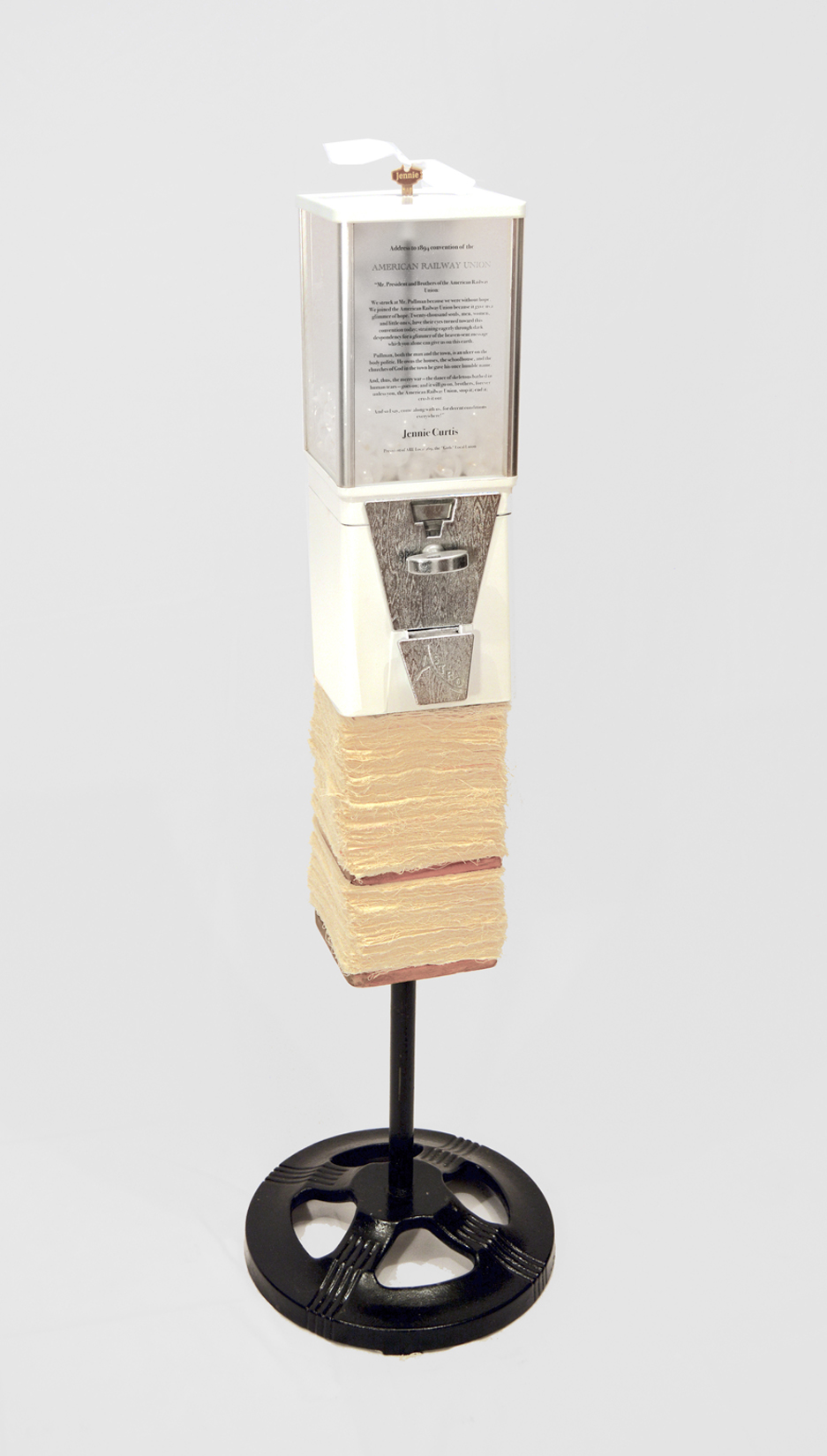
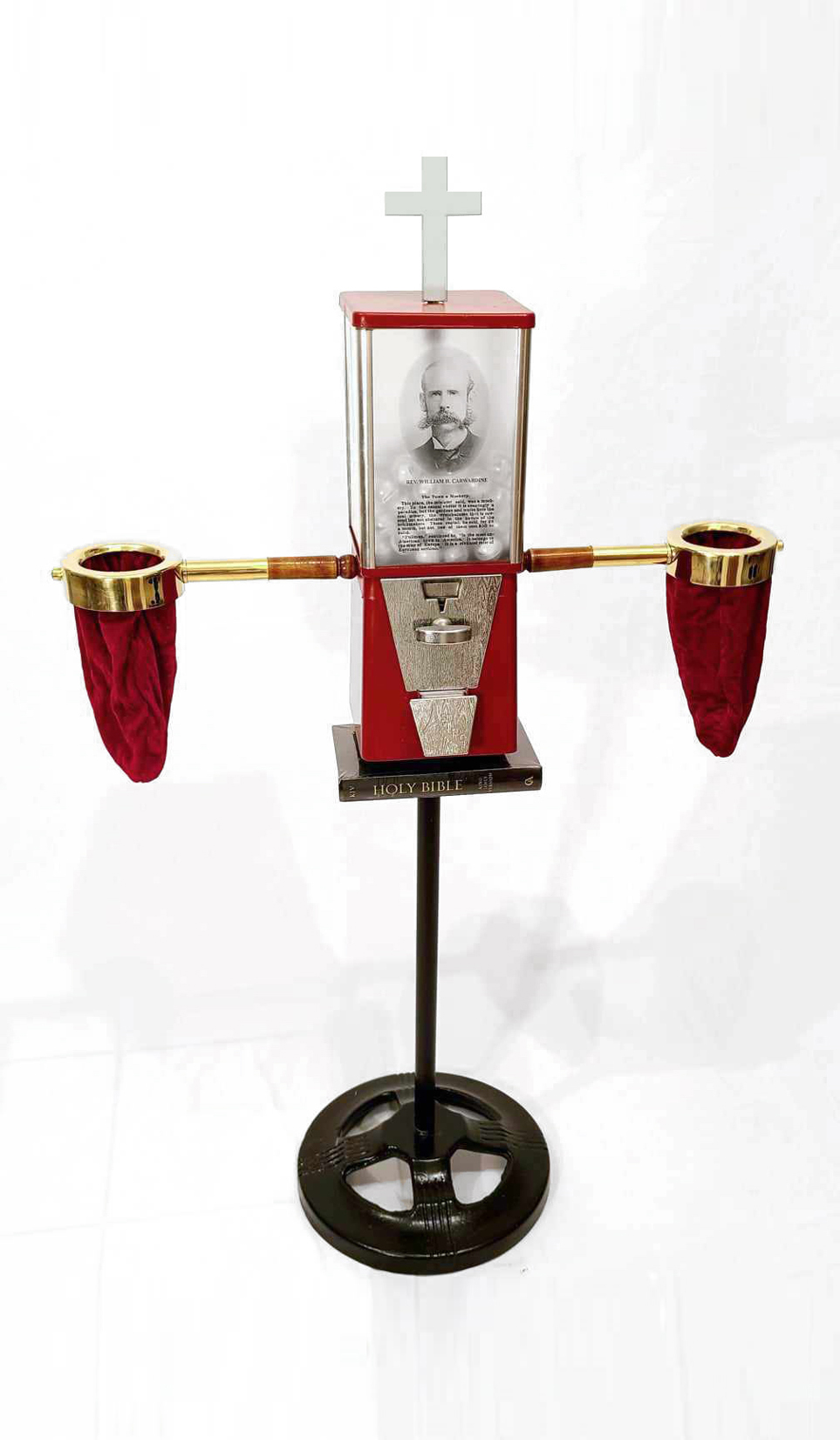
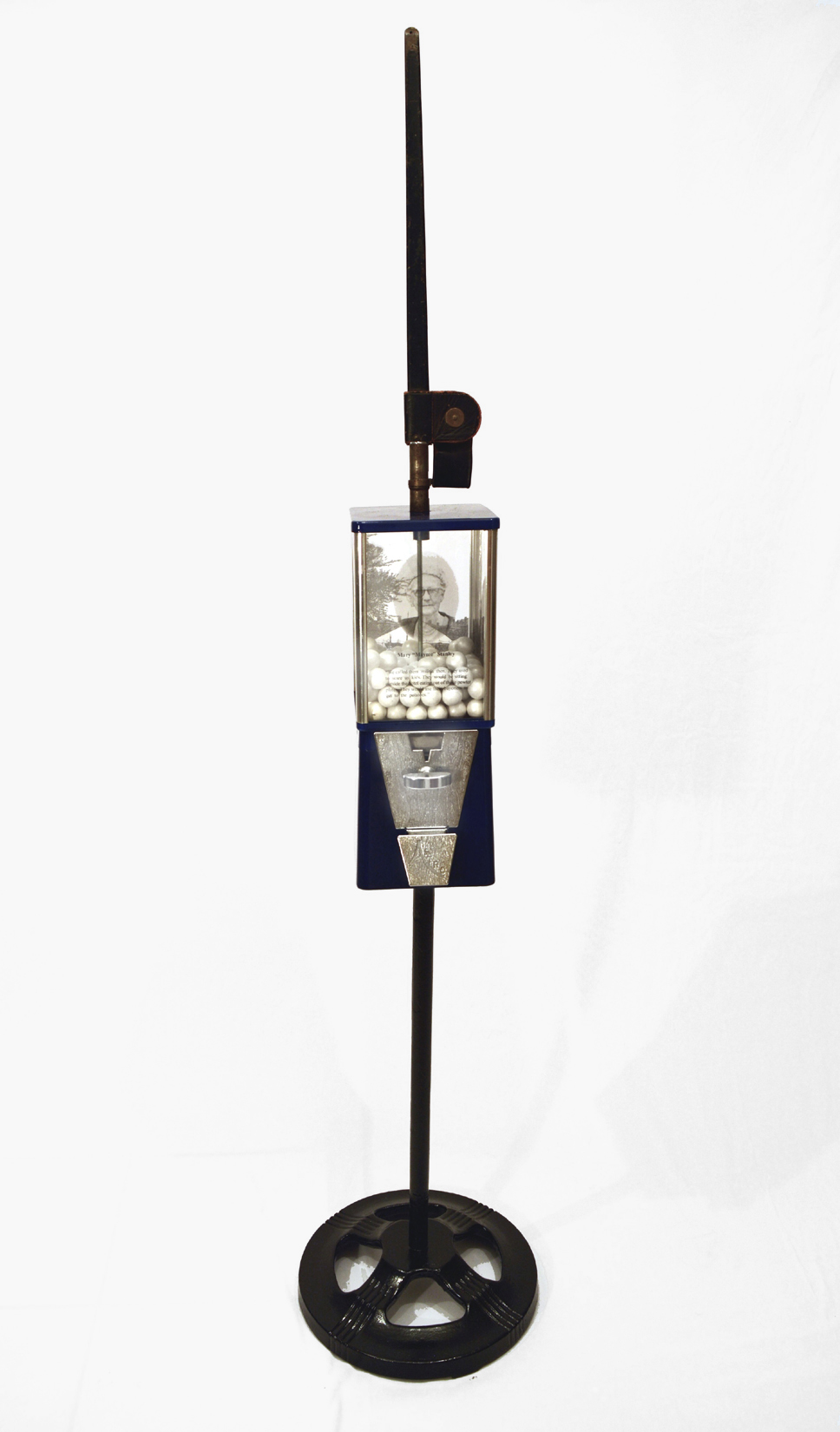
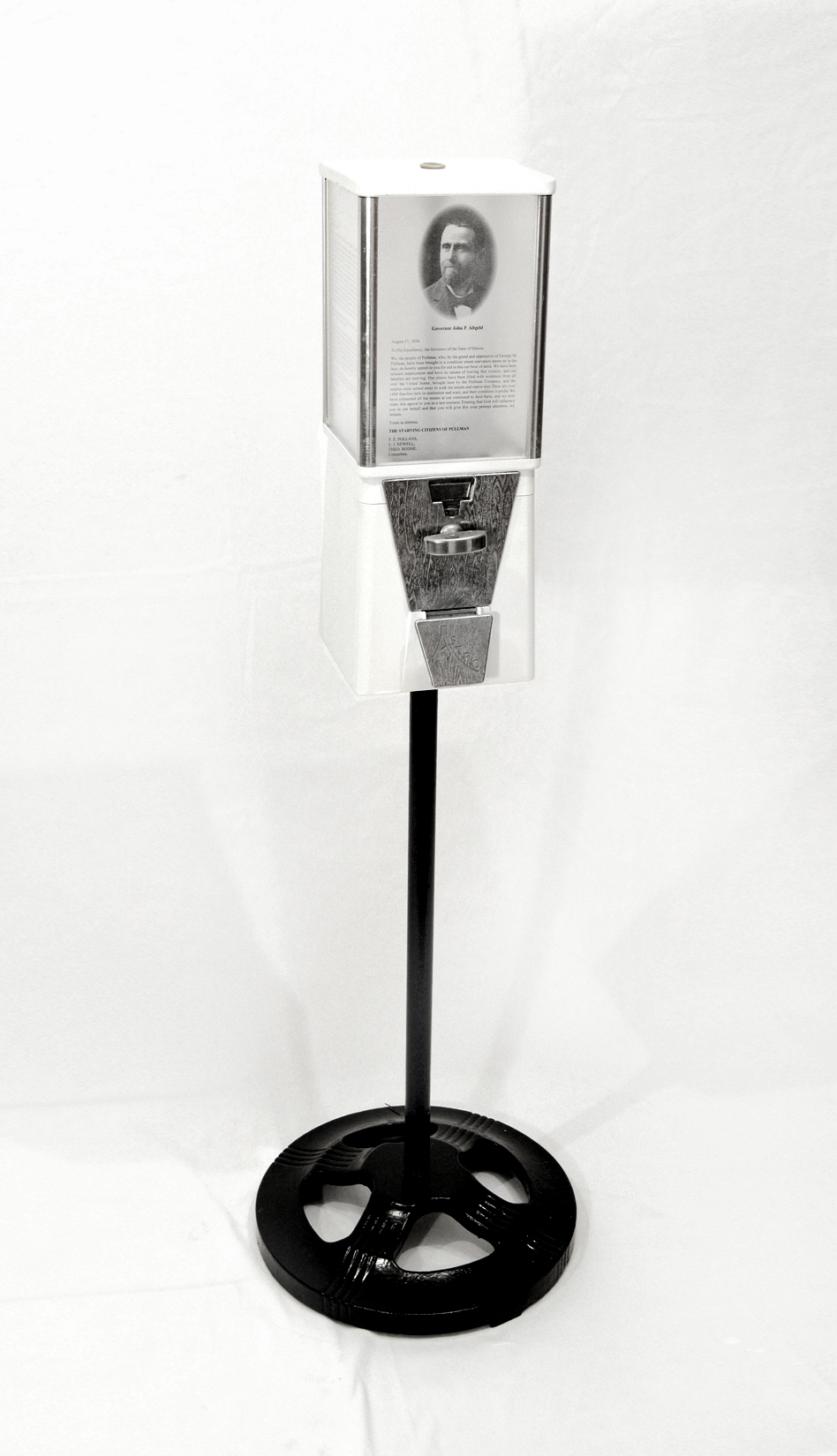
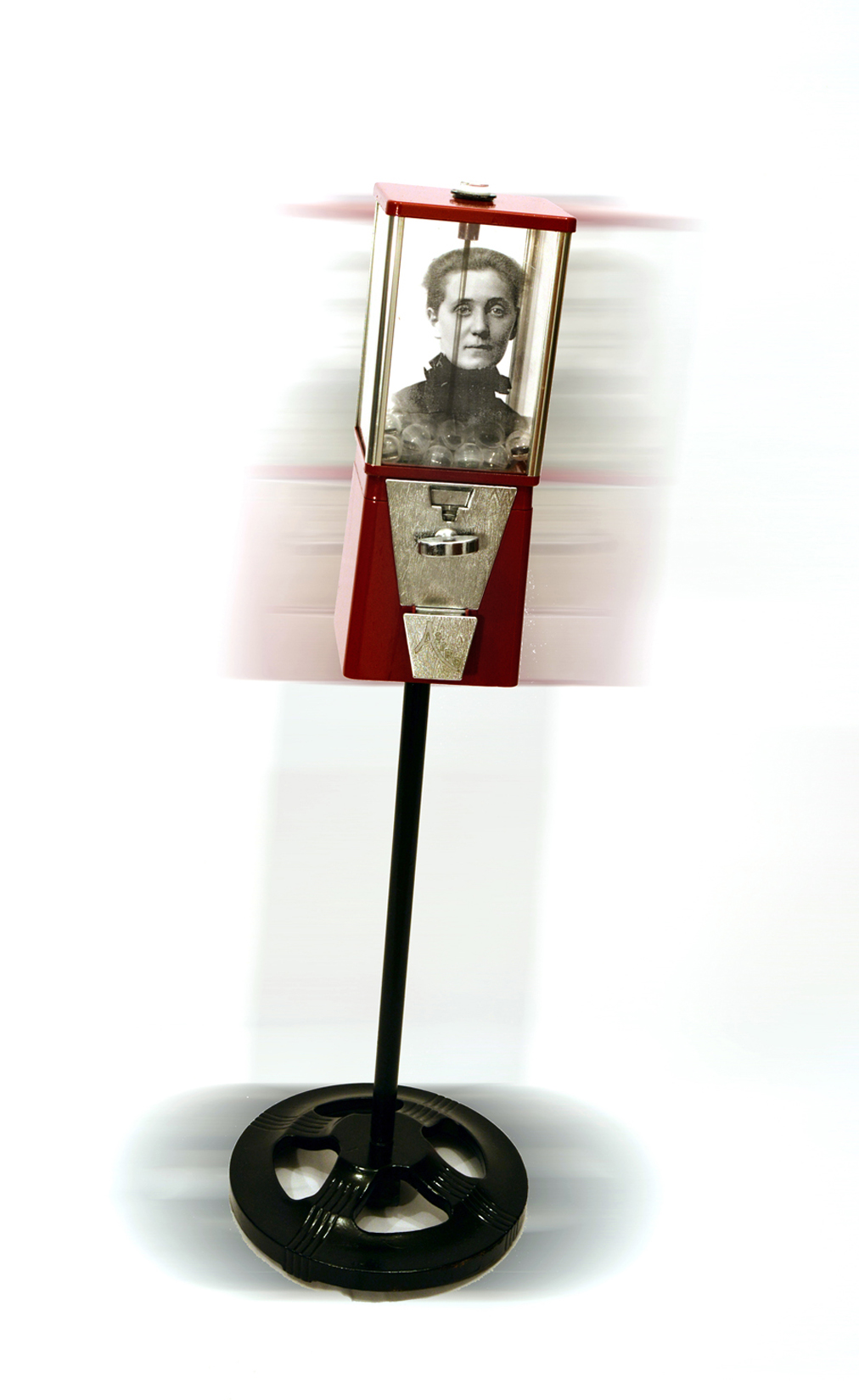
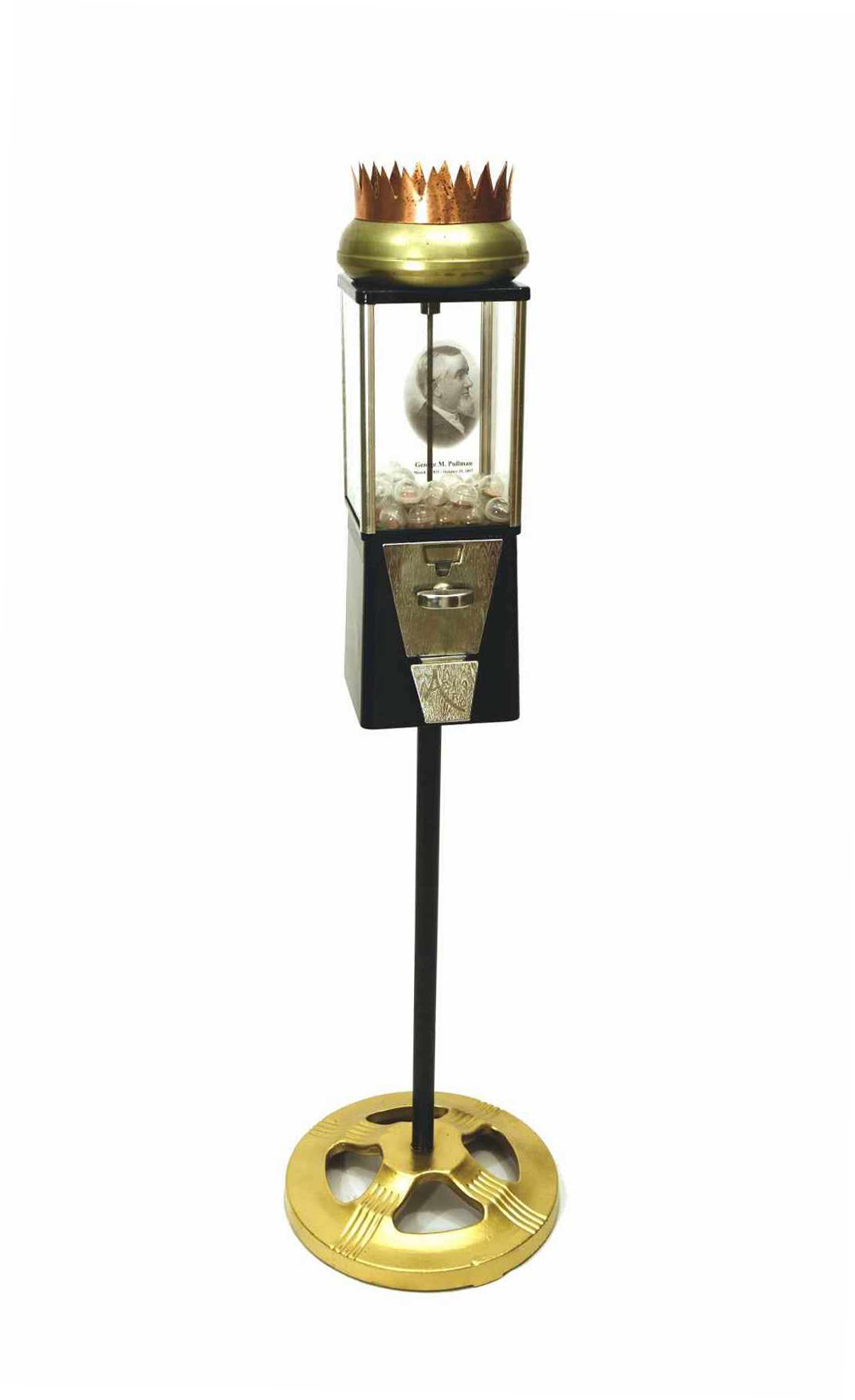
The Gumball Project |
other ART sites design by: t a l l s k i n n y . c o m